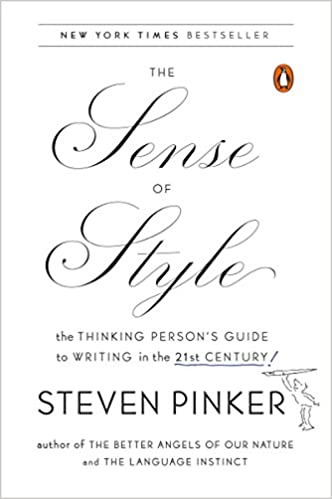The distinction between singular and plural enters into linguistic phenomena such as morphology, lexical semantics, and agreement and also must interface with perceptual and conceptual systems that assess numerosity in the world. Three experiments examine the computation of semantic number for singulars and plurals from the morphological properties of visually presented words. In a Stroop-like task, Hebrew speakers were asked to determine the number of words presented on a computer screen (one or two) while ignoring their contents. People took longer to respond if the number of words was incongruent with their morphological number (e.g., they were slower to determine that one word was on the screen if it was plural, and in some conditions, that two words were on the screen if they were singular, compared to neutral letter strings), suggesting that the extraction of number from words is automatic and yields a representation comparable to the one computed by the perceptual system. In many conditions, the effect of number congruency occurred only with plural nouns, not singulars, consistent with the suggestion from linguistics that words lacking a plural affix are not actually singular in their semantics but unmarked for number.
Publications by Year: 2005
2005
In my book How the Mind Works, I defended the theory that the human mind is a naturally selected system of organs of computation. Jerry Fodor claims that ‘the mind doesn’t work that way’ (in a book with that title) because (1) Turing Machines cannot duplicate humans’ ability to perform abduction (inference to the best explanation); (2) though a massively modular system could succeed at abduction, such a system is implausible on other grounds; and (3) evolution adds nothing to our under- standing of the mind. In this review I show that these arguments are flawed. First, my claim that the mind is a computational system is different from the claim Fodor attacks (that the mind has the architecture of a Turing Machine); therefore the practical limitations of Turing Machines are irrelevant. Second, Fodor identifies abduction with the cumulative accomplishments of the scientific community over millennia. This is very different from the accomplishments of human common sense, so the supposed gap between human cognition and computational models may be illusory. Third, my claim about biological specialization, as seen in organ systems, is distinct from Fodor’s own notion of encapsulated modules, so the limitations of the latter are irrelevant. Fourth, Fodor’s arguments dismissing of the relevance of evolution to psychology are unsound.
We examine the question of which aspects of language are uniquely human and uniquely linguistic in light of recent suggestions by Hauser, Chomsky, and Fitch that the only such aspect is syntactic recursion, the rest of language being either specific to humans but not to language (e.g. words and concepts) or not specific to humans (e.g. speech perception). We find the hypothesis problematic. It ignores the many aspects of grammar that are not recursive, such as phonology, morphology, case, agreement, and many properties of words. It is inconsistent with the anatomy and neural control of the human vocal tract. And it is weakened by experiments suggesting that speech perception cannot be reduced to primate audition, that word learning cannot be reduced to fact learning, and that at least one gene involved in speech and language was evolutionarily selected in the human lineage but is not specific to recursion. The recursion-only claim, we suggest, is motivated by Chomsky’s recent approach to syntax, the Minimalist Program, which de-emphasizes the same aspects of language. The approach, however, is sufficiently problematic that it cannot be used to support claims about evolution. We contest related arguments that language is not an adaptation, namely that it is “perfect,” non-redundant, unusable in any partial form, and badly designed for communication. The hypothesis that language is a complex adaptation for communication which evolved piecemeal avoids all these problems.
In a continuation of the conversation with Fitch, Chomsky, and Hauser on the evolution of language, we examine their defense of the claim that the uniquely human, language-specific part of the language faculty (the “narrow language faculty”) consists only of recursion, and that this part cannot be considered an adaptation to communication. We argue that their characterization of the narrow language faculty is problematic for many reasons, including its dichotomization of cognitive capacities into those that are utterly unique and those that are identical to nonlinguistic or nonhuman capacities, omitting capacities that may have been substantially modified during human evolution. We also question their dichotomy of the current utility versus original function of a trait, which omits traits that are adaptations for current use, and their dichotomy of humans and animals, which conflates similarity due to common function and similarity due to inheritance from a recent common ancestor. We show that recursion, though absent from other animals’ communications systems, is found in visual cognition, hence cannot be the sole evolutionary development that granted language to humans. Finally, we note that despite Fitch et al.’s denial, their view of language evolution is tied to Chomsky’s conception of language itself, which identifies combinatorial productivity with a core of “narrow syntax.” An alternative conception, in which combinatoriality is spread across words and constructions, has both empirical advantages and greater evolutionary plausibility.
The research on mind, brain, and behavior that may be relevant to gender disparities in the sciences, including the studies of bias, discrimination and innate and acquired difference between the sexes.
What should students be studying in college? No one seems to agree anymore. Slate has taken the occasion to ask an array of prominent academics to tackle the question at the heart of this debate. Click here to read more from our symposium on reinventing college, and here to read more from Slate’s "College Week."


